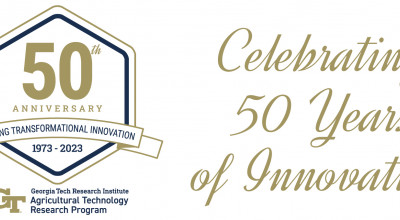E19: Smart Cities
In this episode of the Georgia Tech Research Podcast, host Scott McAtee speaks with Dr. Carl DiSalvo, associate professor in the College of Computing at Georgia Tech, and Greg McCormick, senior Research Engineer in the Electro-Optical Systems Lab of Georgia Tech Research Institute. This episode focuses on the concept of "smart cities" and what they can mean for society at large. Dr. DiSalvo's work for over a decade has focused on how communities use technology. For four years, McCormick has been one of the leaders of the Georgia Smart Communities Challenge.
In this episode of the Georgia Tech Research Podcast, host Scott McAtee speaks with Dr. Carl DiSalvo, associate professor in the College of Computing at Georgia Tech, and Greg McCormick, senior Research Engineer in the Electro-Optical Systems Lab of Georgia Tech Research Institute. This episode focuses on the concept of "smart cities" and what they can mean for society at large. Dr. DiSalvo's work for over a decade has focused on how communities use technology. For four years, McCormick has been one of the leaders of the Georgia Smart Communities Challenge.
Talking Points:
In this episode, listeners will hear about:
- What are Smart Cities.
- The areas of impact for Smart Cities, including: economic development, public safety, energy environment, infrastructure and transportation.
- The Georgia Smart Communities Challenge (Georgia Smart).
- Public response and “buy in.”
- Challenges and long-term outlook.







